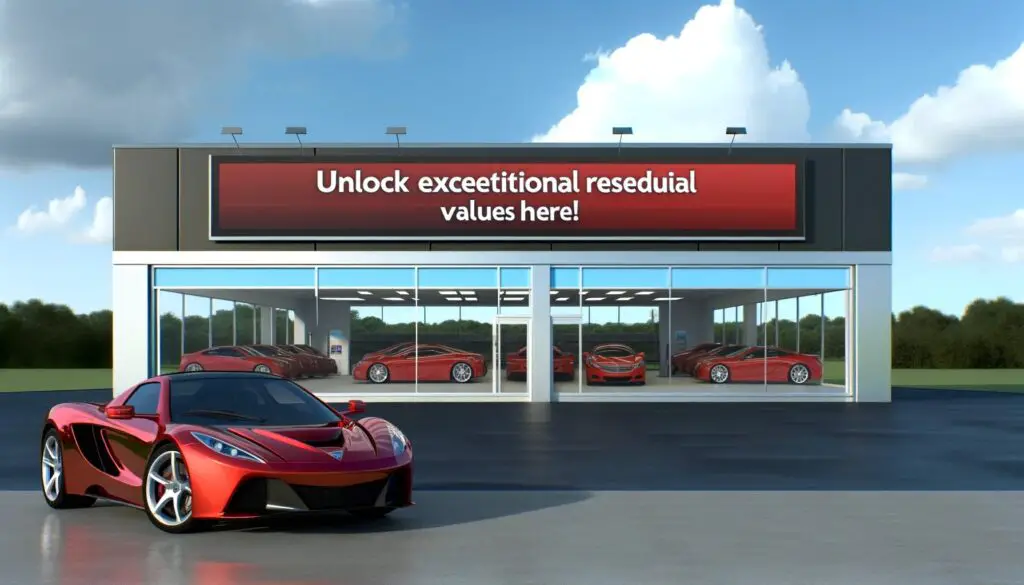When it comes to car donation, many people often think of vehicles that are in good working condition. However, did you know that you can also donate a car that doesn’t run? Donating a non-running car can still make a significant impact and help charitable organizations in their endeavors. In this article, we will guide you through the process of donating a car that doesn’t run, from understanding the importance of car donation to finding a reputable car donation program and addressing frequently asked questions.
I. Understanding Car Donation
What is car donation?
Car donation involves giving away your vehicle to a charitable organization or nonprofit entity. Instead of selling or junking your non-running car, you can donate it to support a cause you believe in.
Benefits of car donation
Car donation offers various benefits, such as helping those in need, supporting charitable organizations, and potentially qualifying for tax deductions. By donating your non-running car, you can contribute to a meaningful cause and make a positive impact.
How car donation programs work
Car donation programs typically partner with charitable organizations and facilitate the process of donating vehicles. They handle the logistics, paperwork, and ensure that your donation goes to a deserving cause.
II. Assessing Your Non-Running Car
Evaluating the condition of your car
Before donating a non-running car, assess its condition. Consider factors such as whether it has significant mechanical issues, body damage, or missing parts. This evaluation will help determine if the car is suitable for donation.
Determining if the car is eligible for donation
While some car donation programs accept non-running vehicles in any condition, others may have specific eligibility requirements. Research different programs to find the ones that accept non-running cars.
Appraising the value of the non-running car
To determine the value of your non-running car, consider factors such as its age, make, model, condition, and market value. This appraisal can help you understand the potential tax benefits associated with the donation.
III. Finding a Reputable Car Donation Program
Researching reputable organizations
Look for reputable charitable organizations or nonprofits that have established car donation programs. Focus on organizations that align with causes you support and have a track record of transparency and accountability.
Evaluating the legitimacy of car donation programs
When considering a car donation program, verify its legitimacy. Check if the program is registered as a nonprofit and research their reputation. Look for reviews, testimonials, and ratings to gain insights into their credibility.
Reading reviews and testimonials
Read reviews and testimonials from previous donors to understand their experiences with the car donation program. Positive feedback and endorsements can provide reassurance about the organization’s professionalism and effectiveness.
IV. Preparing Your Car for Donation
Cleaning the vehicle
Before donating your non-running car, clean it thoroughly. Remove any personal belongings and give it a good wash. Presenting a clean and well-maintained car demonstrates your commitment to the donation.
Collecting all relevant documents
Gather all necessary documents related to the car, including the title, registration, and any maintenance records. Having these documents ready will streamline the donation process and ensure a smooth transition of ownership.
Removing personal belongings
Check every nook and cranny of the car to ensure you haven’t left any personal belongings behind. Remove items such as CDs, paperwork, and personal mementos. Donating a clean and empty car will save time for the receiving organization.
V. Choosing the Right Donation Program
Understanding different types of donation programs
There are various types of car donation programs, including national charities, local nonprofits, and online platforms. Each type has its own advantages, so consider your preferences and the impact you want to make.
Researching specific programs and their impact
Once you have identified the type of program you prefer, research specific organizations within that category. Look into their mission, programs, and how they utilize the proceeds from car donations. Choose a program that resonates with your values.
Considering tax deductions and other incentives
Explore the tax benefits and incentives offered by the car donation program. Check if the organization is eligible for tax-exempt status and consult with a tax professional to understand the potential tax deductions associated with your donation.
VI. Contacting the Donation Program
Initiating contact with the chosen program
Reach out to the car donation program you have selected. Provide them with the necessary information about your non-running car and express your interest in donating it. They will guide you through the next steps.
Inquiring about their requirements and process
Ask the car donation program about their specific requirements and the donation process. They may have specific guidelines for non-running cars, so it’s important to be aware of their expectations.
Asking questions about their procedures
Don’t hesitate to ask questions about how the car donation program handles the pick-up, paperwork, and logistics. Clarify any doubts or concerns you may have before proceeding with the donation.
VII. Arranging for Vehicle Pickup
Scheduling a convenient pickup date and time
Coordinate with the car donation program to schedule a pickup date and time that is convenient for you. Ensure that someone is available to grant access to the vehicle and assist with the pickup process.
Ensuring accessibility to the vehicle
Park your non-running car in a location that is easily accessible for the towing company. Clear any obstacles or obstructions that may hinder the pickup process.
Confirming logistics and contact information
Before the scheduled pickup, confirm the logistics with the car donation program. Double-check the contact information, address, and any other details to avoid any miscommunication or delays.
VIII. Transferring Ownership and Paperwork
Completing the necessary paperwork
During the pickup, you will need to complete the required paperwork. This may include the transfer of the title and signing a donation agreement. Follow the instructions provided by the car donation program and ensure all paperwork is properly filled out.
Transferring ownership to the organization
Transfer the ownership of the non-running car to the receiving organization as per the instructions provided. This step ensures that you are no longer liable for the vehicle and that it is legally transferred to the nonprofit.
Retaining copies of all documents
Make copies of all the paperwork involved in the car donation process. Keep these copies for your records and future reference, including any receipts or acknowledgments provided by the organization.
IX. Tax Considerations and Benefits
Understanding tax deductions for car donations
Consult with a tax professional to understand the tax implications of donating a non-running car. They can guide you on how to maximize your tax deductions and provide advice specific to your situation.
Collecting required documentation for tax purposes
Keep all relevant documents related to the donation for tax purposes. This may include the acknowledgment from the organization, the donation agreement, and any appraisals or receipts associated with the value of the car.
Consulting with a tax professional for guidance
If you have any uncertainties or questions regarding the tax benefits of car donation, seek advice from a qualified tax professional. They can provide accurate information based on your individual circumstances.
XI. Frequently Asked Questions (FAQs)
- What condition does my car need to be in to donate it?
- Car donation programs typically accept vehicles in various conditions, including non-running cars. While some programs may have specific requirements, many organizations are willing to accept cars that are not in working condition.
- Can I donate a car that doesn’t run?
- Yes, you can absolutely donate a car that doesn’t run. Many car donation programs accept non-running vehicles and will arrange for towing to facilitate the donation process.
- How do I find a reputable car donation program?
- To find a reputable car donation program, start by researching well-established charitable organizations or nonprofits that offer car donation services. Look for programs that have positive reviews, transparency in their operations, and a clear mission.
- What documents do I need to donate my car?
- The documents required for donating a car may vary depending on the program and location. Generally, you will need the car’s title, registration, and any other relevant paperwork to transfer ownership. Contact the donation program to confirm their specific documentation requirements.
- How long does the car donation process take?
- The timeline for the car donation process can vary. Once you contact the donation program and arrange for pickup, it typically takes a few days to a couple of weeks for the pickup to occur. The exact time may depend on factors such as the program’s availability and logistics in your area.
- Are there any tax benefits for donating a car?
- Yes, there are potential tax benefits for donating a car. In many countries, including the United States, you may be eligible for a tax deduction based on the value of the car. Consult with a tax professional to understand the specific tax benefits and requirements in your jurisdiction.
- Can I donate a car that’s not in my name?
- In most cases, you need to be the legal owner of the car to donate it. However, certain programs may accept donations from individuals who have legal authority or documentation allowing them to donate the vehicle on behalf of the owner.
- What happens to my car after I donate it?
- After you donate your car, the receiving organization will typically sell it to generate funds for their charitable activities. In some cases, they may use the vehicle for their operations or give it to individuals or families in need.
- Can I donate a car that has a salvage title?
- Some car donation programs accept vehicles with salvage titles, while others may have restrictions on salvage vehicles. It’s essential to check with the specific program you intend to donate to for their policies regarding salvage-titled cars.
- Do I need to remove the license plates before donating?
- Depending on the regulations in your jurisdiction, you may need to remove the license plates before donating your car. Check with your local Department of Motor Vehicles (DMV) or relevant authorities to understand the requirements for license plate removal.
XII. Conclusion
Donating a car that doesn’t run is a meaningful way to support charitable causes and make a positive impact. By following the steps outlined in this article, you can navigate the process of donating your non-running car with confidence. Remember to assess the condition of your car, research reputable donation programs, prepare the necessary paperwork, and consider the tax benefits associated with your contribution. By donating your non-running car, you not only contribute to a worthy cause but also ensure that your vehicle finds a new purpose even when it can no longer be driven. Start the journey of making a difference today by donating your car that doesn’t run.





